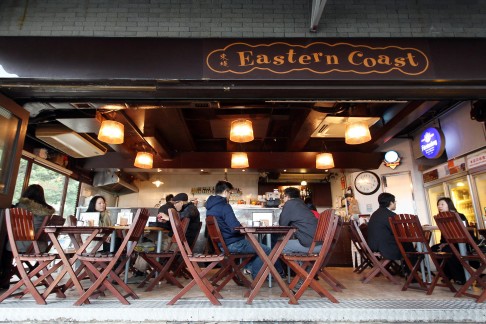
So you want to run a restaurant?
Restaurateurs trying to keep a step ahead of the landlords are creating new dining hubs in cheaper areas, but rent rises are never too far away
You know that thing they say about what really matters in retail business - location, location and location - it might be a cliché but it's hard to deny because it is really hard to sell even the best product in the wrong place.
One of the great things and one of the worst things about doing business in Hong Kong is that the choice of location is usually driven entirely by price.
I've never come across premises that are somehow priced below the going rate. Indeed I would flabbergasted if there is such a thing as a bargain property because, in my experience of finding premises, there is a take it or leave it market price - sometimes you pay a tad more but rarely less.
To put it crudely, if you have a business that depends on accessibility, or defines itself by where it is located, then you either pay the going price for being there or … or what?
Businesses that create new destinations have to be admired
Sometimes there is a temptation to think that you can save some money by maybe not being exactly where the business needs to be and that you can go nearby or elsewhere.
I have to admit that my company was thinking on these lines when we opened a restaurant in Kowloon Bay.
We secured premises in a new office building and did great business at lunchtime but it was dead in the evenings as office workers went home and there was no one to take their place.
Of course the landlords were well aware of this problem and priced the premises accordingly, well, kind of accordingly.
We could have moved almost next door to a bigger building that contained both offices and shops, but the rental price difference seemed to be too great to justify the extra expense.
We foolishly imagined that evening customers would be prepared to leave the shopping centre and head our way.
Suffice to say that this restaurant is now closed and a bitter lesson was learned.
In many places, but particularly in Hong Kong, the right location is a matter of precision. The reason being that Hong Kong people really value convenience and when it comes to casual dining they want to be able to go somewhere that is not only close to where they already are, but requires no effort to get there.

Another company I'm involved with is able to be located on the third floor of a Central shopping centre because it does not depend on passing trade, but caters for people who set out to look for specialist kitchen equipment. We would be wasting money by moving to the busier and more expensive lower floors.
None of this will be news to anyone who has tried to open a retail outlet, but you have to admire the audacity and creativity of businesses that literally create new destinations.
In the restaurant business there has been a steady drift of new outlets to the Western and Eastern sides of Hong Kong island. Pioneers have created new destination hubs in places like Sai Wan Ho, but there's a catch. Isn't there always!
The catch here is that while the pioneers enjoy a couple of years of low rentals, as soon as they have become successful rental prices catch up with the new situation and rise accordingly, making the new areas every bit as expensive as areas they have vacated in search of lower operating costs.
Another tactic in the search for lower rents has been for restaurants to move to higher and yet higher floors of buildings in areas where lower floor rents have become unmanageable.
Lamentably, this too is problematic because I know of buildings where either it has proved impossible to lure customers from the more convenient lower floors (which usually means the ground floor) or if they are successful a mini-restaurant hub emerges.
I hardly need to spell out what then happens to rental prices.
It's really a case of trying to keep one step ahead of the landlords but they are not slouches and you are unlikely to be many steps ahead of them.
And there's another problem because building restaurants or indeed many other types of premises, requires quite heavy investment that is hard to recover within the period of just one rental agreement, so the incentive to stay and fully depreciate this investment is considerable.
It seems to me that the mystery lies not in the very high rate of restaurant failures but in the fact that not even more lose the battle for survival. However, restaurateurs, like other entrepreneurs, are optimists by nature and tend to look at these obstacles as challenges, not barriers - at least that's the theory.

